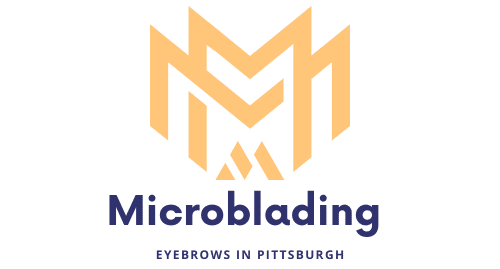What’s the Ideal Nutritional Regimen for a Bulldog with Chronic Skin Conditions?

Your four-legged friend’s health is undoubtedly your top priority. When your pet starts to exhibit signs of discomfort or illness, it’s natural to worry. If your bulldog is constantly scratching, itching, or shows signs of skin inflammation, it could be due to allergies, which can be drastically improved, if not entirely cured, through dietary adjustments. This guide aims to provide you with in-depth knowledge on the relationship between a bulldog’s diet and their skin health.
Identifying Your Bulldog’s Skin Problems
Before you can address your bulldog’s skin problems, you need to identify their symptoms and potential causes. Allergies are a common issue in dogs, and they often manifest in skin conditions. Bulldogs are particularly susceptible to a variety of allergies, from environmental allergens like pollen and dust mites to food allergies.
En parallèle : What Are the Best Techniques to Prepare Your Dog for Air Travel?
Symptoms of skin allergies in dogs include itching, redness, swelling, and chronic ear infections. Food allergies may also cause gastrointestinal problems, such as vomiting and diarrhea. If your bulldog shows any of these symptoms, it’s crucial to visit your vet for a proper diagnosis. They may perform allergy tests or dietary trials to determine the cause of your dog’s discomfort.
Importance of Diet in Managing Skin Conditions
The saying "you are what you eat" holds true for dogs, too. Your bulldog’s diet plays a critical role in maintaining their overall health, and this includes their skin health. Foods rich in omega fatty acids, zinc, and certain vitamins can significantly improve skin conditions.
Cela peut vous intéresser : How to Build a DIY Agility Course for Your Dog Using Household Items?
Omega fatty acids, including Omega-3 and Omega-6, are essential for skin health. These fatty acids are anti-inflammatory, making them beneficial for dogs suffering from skin allergies. They also contribute to a shiny, healthy coat.
Zinc plays a key role in maintaining healthy skin and fur in dogs. A deficiency in zinc can lead to skin problems like dermatitis and hair loss. Similarly, vitamins such as vitamin E are essential for skin health. Vitamin E is a powerful antioxidant that can help protect your bulldog’s skin from damage.
Ideal Foods for Bulldogs with Skin Allergies
If your bulldog is suffering from skin allergies, certain foods can help alleviate their symptoms. Remember: always consult your vet before making any drastic changes to your pet’s diet.
Lean proteins should be a staple in your bulldog’s diet. Proteins like chicken, turkey, and fish are not only palatable for most dogs but also easy to digest. However, some dogs may be allergic to certain types of protein, so it’s essential to monitor your bulldog’s reaction to new proteins.
Fruits and vegetables are also crucial. They provide vital vitamins and minerals, as well as dietary fiber for digestive health. Broccoli, sweet potatoes, and blueberries are all excellent choices. However, remember that not all fruits and vegetables are safe for dogs – for instance, grapes and onions should be avoided.
Lastly, consider adding a zinc supplement or foods rich in zinc to your bulldog’s diet. Zinc-rich foods include meats, spinach, and pumpkin seeds.
Incorporating Commercial Diets into Your Pet’s Diet
Commercial diets can be a convenient way to ensure that your bulldog is getting the necessary nutrients. Many commercial diets are specially formulated for dogs with skin allergies. They often include ingredients like fish oil, which is high in omega fatty acids, and easily digestible proteins. However, it’s vital to choose a high-quality commercial diet and to check the ingredients list carefully.
Some commercial diets may contain fillers, like corn and wheat, that can trigger allergies in some dogs. Furthermore, a diet labeled as "grain-free" isn’t necessarily healthier or better for dogs with allergies, as grains are not a common allergen for dogs.
In conclusion, managing your bulldog’s skin conditions requires a thorough understanding of the link between diet and skin health. By providing your bulldog with a balanced, nutrient-rich diet, you can significantly improve their skin conditions and overall wellbeing. However, always consult your vet for professional advice tailored to your bulldog’s specific needs.
Customizing Your Bulldog’s Diet for Skin Health
Managing a bulldog with skin issues goes beyond just providing a balanced diet. It involves tailoring your pet’s meals to suit their specific needs. Remember, a diet that works for one bulldog may not necessarily work for another, especially if your bulldog has a food allergy.
When customizing your bulldog’s diet, lean proteins should take center stage. Opt for proteins like chicken, turkey, and fish which are not only delicious to most dogs but also easy to digest. However, it’s important to note that some dogs may be allergic to certain proteins. Such situations call for carefully monitoring your bulldog’s reaction when introducing a new protein.
In addition to proteins, fruits and vegetables are also an essential part of your bulldog’s diet. They provide essential vitamins and minerals, as well as dietary fiber for optimal digestive health. Excellent choices include broccoli, sweet potatoes, and blueberries. However, do remember that not all fruits and vegetables are safe for dogs – grapes and onions, for instance, should be avoided.
Lastly, consider adding a zinc supplement or foods rich in zinc. This mineral plays a key role in maintaining healthy skin and fur, with foods like lean meats, spinach, and pumpkin seeds being excellent sources of zinc.
Conclusion: Finding the Perfect Balance in Diet
In sum, managing your bulldog’s skin conditions largely boils down to understanding the correlation between diet and skin health. By offering your bulldog a nutrient-rich, balanced diet, you can significantly improve their skin conditions and overall wellbeing. However, it is important to remember that food allergies in bulldogs are not uncommon and can significantly impact their skin health.
Hence, always consult your vet before making any drastic changes to your bulldog’s diet to avoid causing more harm than good. They can provide you with professional advice, tailored to your bulldog’s specific needs, and conduct any necessary allergy tests or dietary trials.
While commercial diets can be a convenient alternative, it’s key to select a high-quality product and carefully check the ingredient list. Avoid diets with fillers like corn and wheat that might cause further skin irritation. Remember, a grain-free diet isn’t necessarily healthier or better for dogs with allergies, as grains are not a common allergen for dogs.
Ultimately, finding the perfect balance in your dog’s diet might take some time and experimentation. But with patience, consistency, and regular vet check-ups, you can significantly alleviate your pet’s discomfort and enhance their quality of life. Remember, every bulldog is unique and deserves a diet that is just as special as they are.
